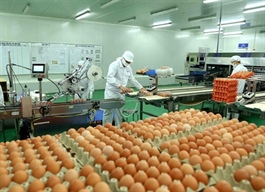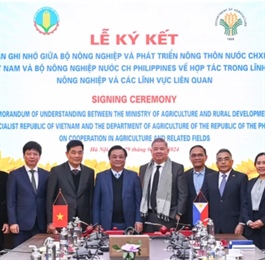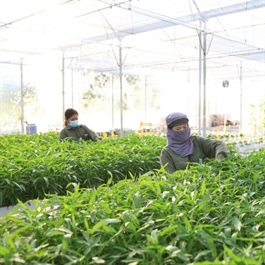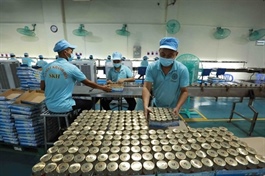Non-tariff barriers raise issues for improving competitiveness, compliance
Non-tariff barriers raise issues for improving competitiveness, compliance
The recent move by the European Union to increase official controls on several farm products from Việt Nam has notified producers and exporters of the importance of fully complying with the regulations of the import markets and improving competitiveness to make exports sustainable.
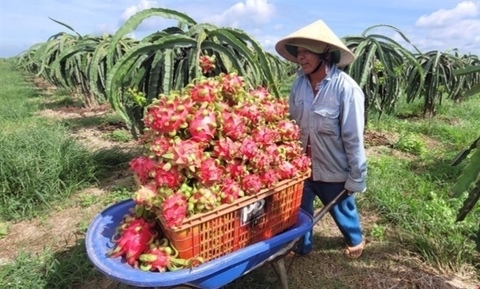
A farmer in Xuyên Mộc District, Bà Rịa-Vũng Tàu Province, harvests dragon fruits. The product must comply with strict requirements on the allowed level of residues to enter importing markets. — VNA/VNS Photo Hoàng Nhị |
Under the EU’s announcement, starting from early February, durians, peppers of genus capsicum and instant noodles containing spices, seasonings or sauces from Việt Nam will be under increased levels of official controls, with the frequency of identity and physical checks at 10-50 per cent.
Okra and dragon fruit are subject to special conditions for entry into the union, due to contamination risk by mycotoxins, with the frequency of checks at 50 per cent and 20 per cent.
The EU updates this list every six months.
For durian, this is the first time this type of fruit was subject to control with a frequency of 10 per cent.
A representative from SK International which is exporting durian into the EU said that because the durian export into this market is not huge, the damage to enterprises will be modest.
However, the bigger problem is that opportunities for durian in the EU are fading away.
Lê Anh Trung, deputy chairman of the Đắk Lắk Durian Association, said that the increased controls will prolong the customs clearance process, resulting in rising costs.
Entering the market is already difficult, but maintaining market share can be even more difficult, he said.
If the quality is not strictly controlled, the risk of increased non-tariff barriers is clear.
According to Trần Văn Công, Vietnamese Agricultural Counsellor to the EU, if the shipments contain pesticide residues exceeding the allowable threshold, the EU will likely further increase the level of control to 20-50 per cent, or require mandatory food safety certificates.
Quantitative restrictions are one non-tariff barrier that Vietnamese goods encounter when penetrating international markets, including quotas, he said.
In the trend of trade liberalisation, quotas tended to be eliminated. However, quotas are still common for agricultural products. Besides, technical measures are also applied.
Ngô Xuân Nam, deputy director of the Việt Nam Sanitary and Phytosanitary Notification Authority and Enquiry Point (SPS Vietnam), said that the production must strictly comply with requirements to ensure the level of residues below the allowable limits.
Carrying out controls on agricultural products is a regular activity of importing countries, but placement on the list for increased control is an alarm bell for farmers and exporters to better meet safety standards, he said.
The Ministry of Agriculture and Rural Development is planning to propose to the EU to reduce the frequency of control on several products based on the results of domestic residue controls which will remove difficulties and pave the way for Vietnamese agricultural products to conquer this huge market.
It is necessary to Việt Nam to thoroughly understand non-tariff barriers to promote exports and at the same time to protect domestic production.
In the long term, competitiveness must be enhanced through reducing costs and improving quality, he stressed.
Not only the EU, but China has also changed its policies on importing food and agricultural products with increased requirements for quality and safety, Deputy Minister of Agriculture and Rural Development Trần Thanh Nam said.
If Việt Nam can meet their requirements, highly demanding markets offer huge potential for extending international reach, Nam said, adding that only by building sustainable trade relationships based on the establishment of supply chains can Vietnamese goods enter the global supply chain.










